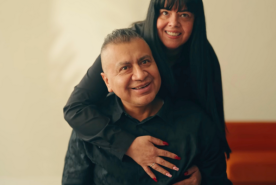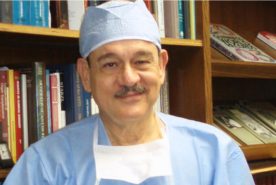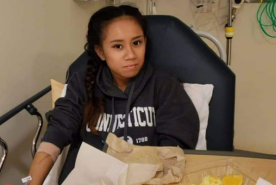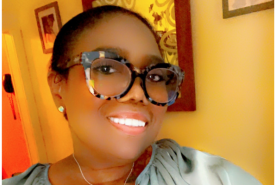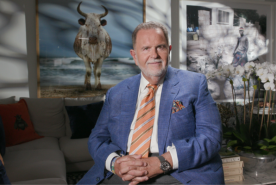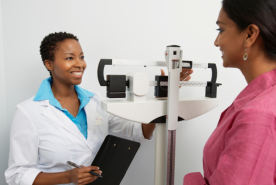December 07, 2023
Learn about six more celebrities who've faced kidney disease while pursuing their passions and careers. Their stories prove that kidney disease cannot stop you from making a lasting impact on the world.
1. Selena Gomez
Selena Gomez is an actress and singer best known for her roles in Wizards of Waverly Place and Only Murders in the Building, and hit songs like "Love You Like A Love Song". In 2015, Gomez shared her lupus diagnosis with the world. One year later Gomez's kidneys failed, but Francia Raisa, a friend, stepped up to donate one of her own in 2017.
"My doctors told me I had lupus nephritis, one of the most common complications of lupus. They said that I would be needing a kidney transplant. I wasn't necessarily good at knowing what that meant so it actually got to a point where it was life or death. Thankfully, one of my best friends gave me her kidney and it was the ultimate gift of life. And I am doing quite well now," Gomez said in a 2017 ABC interview. "Not everyone is lucky enough to have a donor, and something as monumental as an organ transplant shouldn't be the best treatment option available." Need help finding a living donor? Take "Finding a Living Donor," a free online course that teaches you how to share your story to find someone.
2. Natalie Cole
In 2009, singer and actress Natalie Cole was diagnosed with Hepatitis C, a virus that attacks the liver. With treatment, her liver function returned to 80%. Unfortunately, the treatment also compromised her kidneys. Four months later Cole's kidneys failed, and she began hemodialysis while on tour.
It can take three to five years to receive a transplant, but Cole’s search for a kidney ended within months. The family of a fan who passed away directed that the kidney go to Cole if it was a match, which it was. There was only one problem–her sister, Cookie, was in a coma and Cole didn’t want to leave her side. She did only after her family insisted Cookie would want Cole to have a chance at a healthier life. Cookie passed away shortly after, but Cole’s kidney transplant was a success.
"I was getting good news and very bad news at the same time. This was a very joyous moment where I got a new life. It was also a very sorrowful moment, where my sister had gone on, and the family that donated the kidney had lost their daughter as well," said Cole in an interview with AARP. "My first reaction was that I wished I were back on dialysis to have my sister. These two people had left this earth—and I was here. Why? I feel like I don't deserve it." Soon after the transplant, doctors diagnosed Cole with pulmonary arterial hypertension, high blood pressure that targets the lungs. Her body responded well to treatment for six years before she developed heart failure. Natalie Cole passed away on December 31, 2015.
Join the NKF Blog Newsletter
Get inspirational stories and kidney disease resources delivered to your inbox every month. You'll gain practical insights and expert advice to help you better understand and manage your kidney health no matter where you are on your kidney journey. Subscribe today.
3. Lucy Davis
Lucy Davis is an English actress best known for playing Dawn Tinsley in The Office and Hilda Spellman in The Chilling Adventures of Sabrina the Teenage Witch. Many might not know that she has been dealing with kidney issues for more than twenty years.
Davis was first diagnosed with kidney failure in 1993 but received a kidney from her mother in 1997. In 2005, Davis developed diabetes and experienced a kidney rejection. Luckily, doctors saved her kidney and Davis became a diabetes prevention advocate while continuing her acting career.
"When you are first diagnosed with diabetes it can seem overwhelming and frightening. It could seem easier to bury your head in the sand and hope it will go away. The most important thing to remember is that you must be in control of your diabetes and not the other way around. Many people deal with difficult challenges every day of their lives, and we are lucky that we have medicines and technology available to us that others didn't many years ago," Davis said in an interview with Diabetes U.K. "Diabetes can be as easy or as difficult as we make it. And by controlling it and keeping ourselves healthy, we can help prevent the side effects of diabetes later in life. Be vigilant about your health and your medications. Don't let yourself view it as a chore. Then go out and live your life, and grasp your dreams with both hands."
4. Tonya Ingram
Tonya Ingram was a poet, author, and activist who fought for disability rights and mental health awareness. In 2013, Ingram received a lupus diagnosis, an autoimmune disorder that causes the body to attack itself. Five years later, it caused her kidneys to fail and she began the search for a new kidney. During this time, Ingram continued her advocacy, even testifying at the House Oversight Subcommittee on Economic and Consumer Policy.
Ingram passed away at age 31, December 30, 2022, due to complications from kidney failure, but her legacy lives on.
5. Stevie Wonder
On July 6, 2019, world-renowned musician Stevie Wonder announced he'd briefly stop touring later that year. He needed a kidney transplant. Details are sparse, but he confirmed the surgery was successful and has since resumed touring.
The moment, this evening at Hyde Park, Stevie Wonder told us why he would be taking a break from performing.... pic.twitter.com/pwfjnczGKx
— Aleem Maqbool (@AleemMaqbool) July 6, 2019
"Since I have been released from the hospital, the nurses have made sure I've taken my medicine on time and I'm going to do it for as long as I have to, even if it is the rest of my life," Wonder told Associated Press. "I feel great. My voice feels great. I feel like I'm about 40 right now and I thank everyone for the prayers and the love." In need of a kidney transplant but not sure where to start? Take “First Steps to Transplant” for a beginner’s guide to kidney transplant.
6. Grizzwald Chapman
In 2009, Grizzwald Chapman, an actor best known for playing Grizz on the hit TV series 30 Rock, announced that he needed a kidney transplant. He'd learned that he had kidney disease two years prior but had been battling high blood pressure, a leading cause of kidney disease, for almost a decade. Chapman spent a year undergoing dialysis treatments three days a week for four hours a day while filming 30 Rock and searching for a donor.
He didn't have to wait long! A fan, Ryan Perkins, then in his early 20s, felt called to become Chapman's donor. He was a match and donated a kidney to Chapman in 2010, who still has it to this day.
"I really had no life before the transplant," Chapman told the Tribune. "I still did the things I had to do, but I really couldn't plan anything like activities with the kids, basketball practice, or vacations. I couldn't do anything that wasn't planned around dialysis. I was living, but life wasn't fun. I'm grateful and appreciative to Ryan. When I was his age, I wasn't thinking about giving someone a kidney. How do you ever repay someone for something like that? You can't. It's not like borrowing $20 from someone and telling them you're going to give it back. It's something that you can never repay someone for."
Are you interested in becoming a living kidney donor? Take "Becoming a Living Donor," a free online program that teaches you everything you need about living donation.


